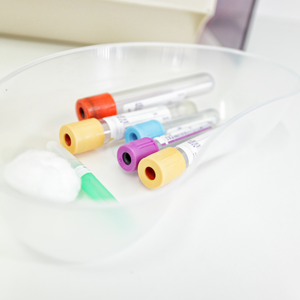PTSD
Sulcata Psychiatry
Post-traumatic stress disorder (PTSD) can occur after you experience a shocking, dangerous, or scary situation. At Sulcata Psychiatry, our providers work closely with adults, adolescents, and children with PTSD in the greater Houston area to help them find the love, happiness, and healing they deserve. Regardless of whether you experienced emotional trauma, repeated traumatic events, or a single event, your feelings are valid. You are more than your trauma, and Sulcata Psychiatry is here to help you heal. If you or a loved one has PTSD, call the office today or request an appointment online.
About PTSD
What is PTSD?
Experiencing trauma rewires your brain to be hyper-vigilant and alert, a natural process that helps you survive life-threatening situations. Post-traumatic stress disorder (PTSD) occurs when your brain continues to act this way long after the danger has passed.
People with PTSD may re-live the scary experience, get panic attacks, or suddenly feel the urge to escape. They may also withdraw from loved ones and become isolated or stuck in unhealthy relationships or behavioral patterns. Some people turn to alcohol or drugs to numb their emotional pain.
If you can relate, know that help is available at Sulcata Psychiatry. Our providers take the time to connect personally to help you heal from trauma.
What are the signs and symptoms of PTSD?
PTSD symptoms vary in type and severity but generally fall into four categories:
Intrusion
Intrusive thoughts can include flashbacks, nightmares, or repeated, involuntary memories of the traumatic event.
Avoidance
These symptoms include avoiding people, places, and things that remind you of the traumatic event, as well as avoiding thinking about the event.
Alterations in mood and cognition
Alterations in cognition and mood can include the inability to recall important aspects of the traumatic event and experiencing negative thoughts and feelings such as, “I can’t trust anyone.” You may become detached or estranged from others and experience continuous fear, horror, anger, guilt, and shame.
Alterations in arousal and reactivity
Arousal and reactivity symptoms may include irritability, engaging in reckless or self-destructive behavior, feeling suspicious, overly watchful, or easily startled, and having difficulty sleeping or concentrating.
How is PTSD diagnosed and treated?
At your first visit to Sulcata Psychiatry, our providers perform a thorough psychiatric evaluation, which may include cognitive testing to pinpoint the specific areas where you can use the most help. Then, we work with you as a partner in your mental health care plan, ensuring you receive the education, resources, and relief you need.
Treatment is highly personalized but may include customized medication management with Genomind® pharmacogenetic testing, talk therapy, or a combination of both.
Sulcata Psychiatry providers treat the body and mind as a whole and incorporates alternative approaches like Vitamin Therapy, bibliotherapy and lifestyle changes, including sleep habits, nutrition, exercise, and stress-reduction techniques like yoga.
To learn how you can heal from PTSD, call Sulcata Psychiatry today or request an appointment online.
















